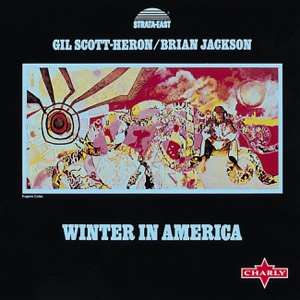What if the Velvet Underground’s songs all sounded alike and also they were fronted by a dime-store knockoff Lou Reed with no vocal range and less ability to carry a tune? I made it about halfway through this unlistenable mockery of a rock ‘n roll album before giving up entirely.
Almost as close to a perfect rock album as has ever been made. The liner notes say it all:
To Be Played At Maximum Volume.
With its spare production highlighting Talking Heads’ driving rhythm section behind Byrne’s bellowing sprechstimme, this album answers the question: What if punk music was composed and performed by actual musicians?
5 stars if you're having sex while listening.
Aside from “Call Me Al” and “Graceland”, this album should have been credited to Ladysmith Black Mambazo (feat. Paul Simon). But the aforementioned tracks are bangers, and the rest of this eclectic album holds up, even after 40 years.
I think it's easy to forget just how much terrible music was churned out at the height of the world Disco craze in the 1970s. Next to that tsunami of chintz, Chic's attempt to bring a measure of substance to the genre is admirable. Certainly, the contemporary Neo-Disco trend owes a huge debt to Chic for their distinctive vibe and a fairly high standard of musicality.
Unfortunately, outside of the legendary and irrepressible energy of "Le Freak", the album suffers from a bad case of forgettable songwriting. Looking back, this may be one of those albums that is more influential than strictly successful on its own merits. The band's rhythm section absolutely slaps, though.
Two stars, plus one for "Le Freak".
The King of Pop at the height of his abilities. Not quite as groundbreaking as Thriller, but more consistently good.*
* Every Michael Jackson album gets an asterisk hung on the review in acknowledgment that it is difficult if not impossible to separate the man’s genius from his probable crimes.
This album is a tight musical metaphor for profound, clinical depression. Its flattened affect lacks dynamic range. Each track consists primarily of Robert Smith's tuneless, depairing bellow, over a confused swirl of guitars and synths, backed by a seemingly disaffected rhythm section who sound like they were mic'd from the wrong end of a disused warehouse. The album only finally gets interesting on the title track; its last six minutes only serving to accentuate the indistinguishable mire of the previous 37. I'm sure this album must be a soothing listen if you're depressed. Unfortunately, I was enjoying life today, so it didn't do much for me.
Chuck D's socially conscious flow, Flav's interjections, and Terminator X's scratching forrm the backbone of this densely produced masterpiece of a hip-hop album.
Madonna demonstrating surprising versatility. Aside from the three singles, “Love Song” — a duet with Prince — and “Dear Jessie” stand out as examples of her willingness to take creative risks and step outside of her crafted image as a dance pop chanteuse. A robust effort overall.
The Banshees' drummer sure loves his toms. Siouxsie's vocals are passionate if lacking in range. The most impressive thing about this album is its 1981 release date -- Juju clearly prefigures a lot of the New Wave music that was just around the corner.
AC/DC’s 1979 release neatly summarizes the metal of the ‘70s and paves the way for the metal of the ‘80s.
Blondie’s tight five-piece arrangements on this album toss punk, glam, prog, pop, disco, and new wave into a blender and serve it up smooth. Add in Debbie Harry’s distinctive, charismatic vocals, veering effortlessly from croon to growl and back, and you have an album that perfectly captures a mood and a style that was emblematic of its time.
I can't get past Scott-Heron's voice, especially given a trebly vocal mix that makes it almost painfully reedy. Otherwise, this would be a particularly noodley but otherwise innocuous jazz album. Maybe it would help to be stoned, but I wasn't. I turned the volume down at first because the mix was almost painful. Then I got bored after about ten minutes and turned it off.
Honestly, if the album was just the first three songs, this would still be four stars. The balance of the LP is fine. Might grow on me with additional listens.
This album features a cranky, tired, hungry Keith Jarrett jamming out for a solid hour on the wrong piano. Adversity breeds success. No wonder Jarrett hates this album. He gets four stars just for showing up and sticking it out.
It's not hard to imagine that this album was influential in 1981, although, as another reviewer pointed out, "Juju came out 4 months before Mask... and Juju is a much better album.
The music is interesting enough, if repetitive. The screeching guitar feedback and thumping toms start to blur from one song to the next. Unfortunately, I just don't enjoy listening to vocalists who don't sing. I had to force myself to finish this one.
A glam/prog musical tour-de-force, bursting with creativity, but sadly fronted by someone who isn't David Bowie. Sorry, Bryan.













